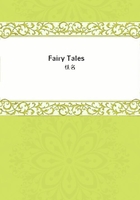
第180章
"Nor me either," replied the parlor-cat; "but I do not take it to heart. Babette may fall in love with the red whiskers, if she likes, but he has not been here since he tried to get on the roof."
The powers of evil carry on their game both around us and within us. Rudy knew this, and thought a great deal about it. What was it that had happened to him on the mountain? Was it really a ghostly apparition, or a fever dream? Rudy knew nothing of fever, or any other ailment. But, while he judged Babette, he began to examine his own conduct. He had allowed wild thoughts to chase each other in his heart, and a fierce tornado to break loose. Could he confess to
Babette, indeed, every thought which in the hour of temptation might have led him to wrong doing? He had lost her ring, and that very loss had won him back to her. Could she expect him to confess? He felt as if his heart would break while he thought of it, and while so many memories lingered on his mind. He saw her again, as she once stood before him, a laughing, spirited child; many loving words, which she had spoken to him out of the fulness of her love, came like a ray of sunshine into his heart, and soon it was all sunshine as he thought of Babette. But she must also confess she was wrong; that she should do.
He went to the mill- he went to confession. It began with a kiss, and ended with Rudy being considered the offender. It was such a great fault to doubt Babette's truth- it was most abominable of him.
Such mistrust, such violence, would cause them both great unhappiness.
This certainly was very true, she knew that; and therefore Babette preached him a little sermon, with which she was herself much amused, and during the preaching of which she looked quite lovely. She acknowledged, however, that on one point Rudy was right. Her godmother's nephew was a fop: she intended to burn the book which he had given her, so that not the slightest thing should remain to remind her of him.
"Well, that quarrel is all over," said the kitchen-cat. "Rudy is come back, and they are friends again, which they say is the greatest of all pleasures."
"I heard the rats say one night," said the kitchen-cat, "that the greatest pleasure in the world was to eat tallow candles and to feast on rancid bacon. Which are we to believe, the rats or the lovers?"
"Neither of them," said the parlor-cat; "it is always the safest plan to believe nothing you hear."
The greatest happiness was coming for Rudy and Babette. The happy day, as it is called, that is, their wedding-day, was near at hand. They were not to be married at the church at Bex, nor at the miller's house; Babette's godmother wished the nuptials to be solemnized at Montreux, in the pretty little church in that town.
The miller was very anxious that this arrangement should be agreed to.
He alone knew what the newly-married couple would receive from
Babette's godmother, and he knew also that it was a wedding present well worth a concession. The day was fixed, and they were to travel as far as Villeneuve the evening before, to be in time for the steamer which sailed in the morning for Montreux, and the godmother's daughters were to dress and adorn the bride.
"Here in this house there ought to be a wedding-day kept," said the parlor-cat, "or else I would not give a mew for the whole affair."
"There is going to be great feasting," replied the kitchen-cat.
"Ducks and pigeons have been killed, and a whole roebuck hangs on the wall. It makes me lick my lips when I think of it."
"To-morrow morning they will begin the journey."
Yes, to-morrow! And this evening, for the last time, Rudy and
Babette sat in the miller's house as an engaged couple. Outside, the
Alps glowed in the evening sunset, the evening bells chimed, and the children of the sunbeam sang, "Whatever happens is best."
XIV. NIGHT VISIONS
The sun had gone down, and the clouds lay low on the valley of the
Rhone. The wind blew from the south across the mountains; it was an
African wind, a wind which scattered the clouds for a moment, and then suddenly fell. The broken clouds hung in fantastic forms upon the wood-covered hills by the rapid Rhone. They assumed the shapes of antediluvian animals, of eagles hovering in the air, of frogs leaping over a marsh, and then sunk down upon the rushing stream and appeared to sail upon it, although floating in the air. An uprooted fir-tree was being carried away by the current, and marking out its path by eddying circles on the water. Vertigo and his sisters were dancing upon it, and raising these circles on the foaming river. The moon lighted up the snow on the mountain-tops, shone on the dark woods, and on the drifting clouds those fantastic forms which at night might be taken for spirits of the powers of nature. The mountain-dweller saw them through the panes of his little window. They sailed in hosts before the Ice Maiden as she came out of her palace of ice. Then she seated herself on the trunk of the fir-tree as on a broken skiff, and the water from the glaciers carried her down the river to the open lake.
"The wedding guests are coming," sounded from air and sea. These were the sights and sounds without; within there were visions, for
Babette had a wonderful dream. She dreamt that she had been married to